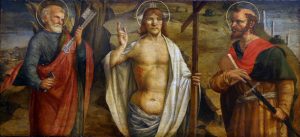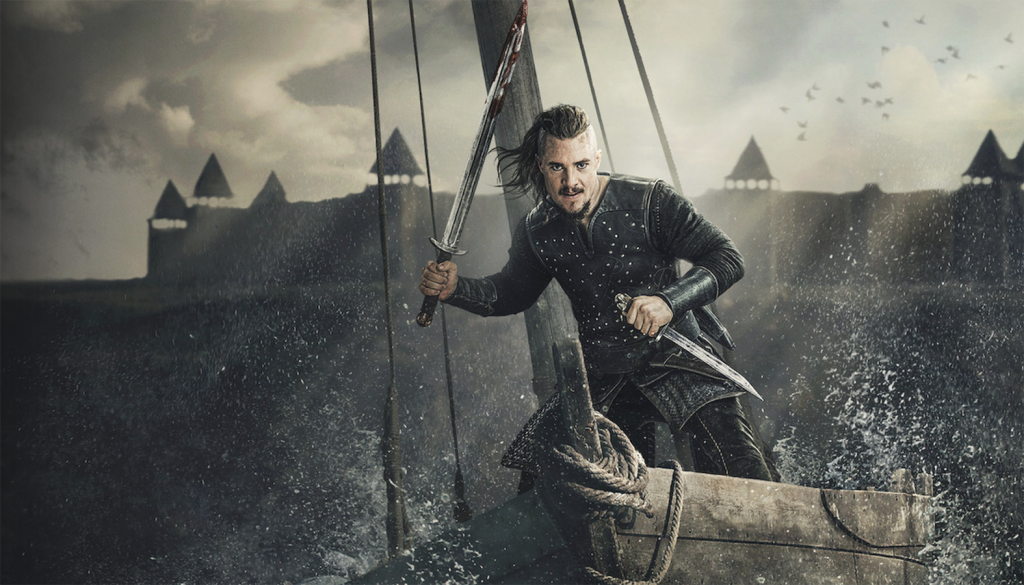They don’t make a lot of things the way they used to, and that has never been so evident than in popular culture when it comes to the care and feeding of heroes. I think that is why my current infatuation with the Netflix series “The Last Kingdom” has taken me hostage.
Thanks to a nasty viral infection, I had the time to binge my way through the entire four seasons in record time. I am seriously thinking about running through the whole series again. My wife thinks it’s the virus that is making me delirious.
To present a hero in the classical sense without mocking the concept, and without falling into a variety of potential traps that diminish the storytelling is a tremendous accomplishment. The protagonist is every ounce the hero, and made me think of how much we have lost over a considerable amount of time as we moved further and further away from this storytelling model.
Our popular culture just doesn’t seem to know what to do about heroes. So many movies and shows focus on a protagonist’s flaws, celebrating any character who is either above or beyond the constraints of society, religious institutions, or other straw men who can be knocked down by a hummingbird’s cough.
Being a hero does not mean being perfect (see: the Bible) and it doesn’t mean merely rejecting a lot of things everyone else readily accepts. The hero in “The Last Kingdom” does a lot of that in navigating the 9th century and the life-and-death struggle as Alfred the Great tried to carve out an English nation in the midst of marauding invaders from Scandinavia.
The more common popular culture version of heroes and villains is found in Netflix’s newest release called “I Care A Lot.” It’s a movie with thoroughly despicable characters who prey upon vulnerable elderly people. The problem with this show is not that it’s about heroes and villains — it’s about villains and villains.
The best hero/myth stories may fit easier in flights of fancy like the “Odyssey” or 9th-century England, but just because a “myth” may be fanciful doesn’t mean it’s void of the truth, or that it can’t be translated to modern times. The hero in “The Last Kingdom” is undoubtedly imperfect, but he is true to himself and to others.
He is willing to make decisions that he knows will cost him dearly but still he makes the hard choices. He is willing to go against the powers that be based on what he knows is the truth and he pays the price for these decisions over and over again. He is oftentimes sadder for his heroism, but he is also wiser. And I am convinced a character in a New York office building could wield a pen like “The Last Kingdom” hero wields his broadsword, and do so in heroic fashion.

The false choice that has evolved, probably over centuries, seems to offer us either a protagonist as a one-dimensional heroic archetype or one who is a soulless and many times twisted “anti-hero.” Whole genres emerged where dark corners of human experience were the norm and plastic heroes were relegated to B-picture westerns and television cop shows up until the early 1970s.
The Bible, the ultimate source of truth, also provides us with heroic templates. Peter and Paul are probably the two most important mortals in the New Testament, and both men fit the heroic mode perfectly. Both men were flawed, some could argue flawed to the extreme. Yet, they were heroic on every level that matters.
Their lives demonstrated that a true hero is never a one-dimensional cardboard cutout, but someone of depth and contradictions. And all heroes are on a quest: Plastic heroes ride off into the sunset in victory. Anti-heroes either ride off over a cliff or recede into the crevices of our darker selves. True heroes ride into our imaginations and inspire.
Whether fictional heroes or ones from ancient and not-so-ancient popular culture leave behind something for all of us to contemplate. Could we be true to ourselves the way Peter and Paul were true in the end? It calls for a rather unhappy earthly ending — but like all real heroes of fact or fiction, the choices we make will have everlasting consequences.

